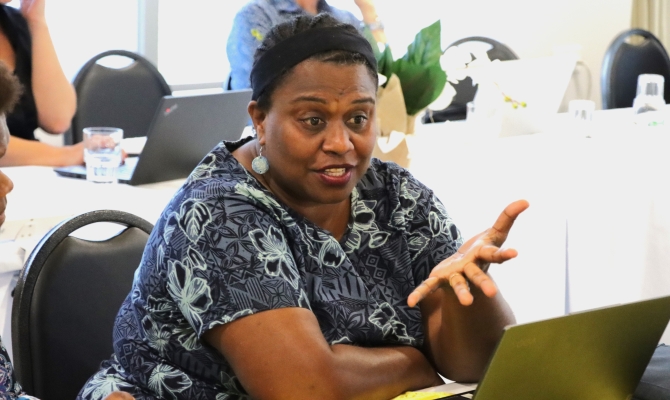Pacific Islands nations are calling on world leaders to commit to an ambitious global plastic treaty modelled along the lines of the hugely successful Montreal Protocol which tackled the issue of ozone layer depletion.
The Pacific is disproportionately affected by the global plastic pollution, contributing less than 1.3 percent but our ocean is inundated with bulk of the world’s transboundary washed away plastics which has serious negative environmental, health, cultural and socio-economic consequences.
The Montreal Protocol, celebrated for its success in phasing out ozone-depleting substances, serves as an inspiring model for the Pacific Islands.
“We don’t have time to reinvent the wheel, a similar international agreement like the Montreal Protocol could be a game-changer in our fight against plastic waste, setting stringent standards and goals for reducing plastic pollution on a global scale. The plastic crisis is not just an environmental issue; it’s a matter of survival for our communities,” said Vanuatu’s Director of the Department of Environmental Protection and Conservation, Touasi Tiwok.
Vanuatu was the first country in the world to ban plastic straws in 2018 in its single-use plastic regulation which also included non-biodegradable plastic, including bags and polystyrene containers. Since then, the island nation has made significant progress with the ban now extended to include plastic cutlery and grocery packaging like netting and clamshell cases.
“In the realm of transformative change, legislation is but a cornerstone. Through the collective effort of the private sector, government departments, our partners, and individuals we are starting to see visible improvement in plastic litter in Vanuatu”.
Close to 8 million metric tonnes of plastic waste enter the ocean annually. Without new and effective control measures, plastic production is set to double in 20 years and plastic waste leaking into the ocean is projected to triple by 2040.
“While the plastics crisis may seem insurmountable, it has ignited a global call to action. Governments, organisations, and individuals have become increasingly aware of the urgency to address this. Now, a unique opportunity is emerging to create transformative change and confront this crisis head-on,” said Fiji’s Principal Policy Officer at the Prime Minister’s office, Vitalina Chung.
The Pacific Ocean Commissioner, Dr Filimon Manoni rallied the call from the Pacific Island nations saying that, “the usefulness of the invention of plastic could not be an argument to lessen the ambition of the future treaty”.
“Like all planetary crises, the effects are local. The responses must be global and universal. The scale of this crisis requires nothing more than a revolution. We need experts, we need science to raise the alarm bells and advise us, together with the wisdom of traditional knowledge holders, towards innovative solutions that are planet and people positive,” Dr Manoni said.
SOURCE: SPREP/PACNEWS














